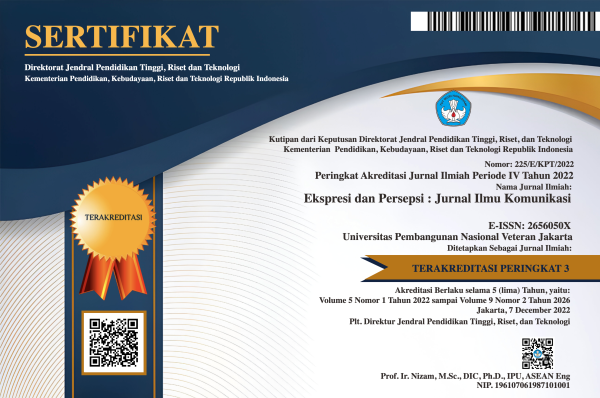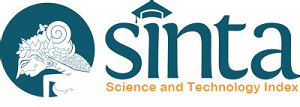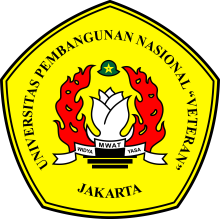The Existence of Radio as Supporting Media for Elections in Aceh (Case Study of Three Radio Stations in Aceh)
DOI:
https://doi.org/10.33822/jep.v7i2.6505Keywords:
election broadcasts, election support media, radio existenceAbstract
In the past, radio was a tool of struggle that was able to inform news to all corners of Indonesia. Even though this broadcasting tool has become a second alternative due to the impact of the internet, many communities still use it. In Aceh there are radio stations that actively inform election updates and politicians take advantage of this opportunity. This research explains the existence of radio in the implementation of elections both as an educational and campaign media. This study focuses on the role of radio in Aceh in the implementation of elections which ultimately confirms the existence of radio in supporting all stages of the election. The approach used is a case study approach based on field data obtained by researchers. This research involved two local private radio stations and one public radio station, RRI. The research results show that radio has a role as a supporting media for elections by presenting accurate and balanced information so as to reduce hoax issues that have the potential to arise during the election period. Furthermore, radio also acts as a bridge between prospective voters and legislative candidates and political parties. Radio plays a role in strengthening democracy in Aceh. The existence of radio is maintained in the current disruptive era because radio stations in Aceh are converging media from conventional to digital by utilizing technology and digital media platforms. In this way, the existence of radio remains relevant and contributes to providing content that is local, current and useful for the people of Aceh.
References
Akinyode, B. F., & Khan, T. H. (2018). Step by step approach for qualitative data analysis. International Journal of Built Environment and Sustainability, 5(3).
apjn.net. (2023). Jelang pemilu 2024, RRI dan Unida Banda Aceh gelar dialog interaktif bertajuk yang muda berbicara. Apjn.net. https://apjn.net/headlines/ap-11336/jelang-pemilu-2024-rri-dan-unida-banda-aceh-gelar-dialog-interaktif-bertajuk-yang-muda-berbicara/
Bawaslu, H. (2022). Bawaslu Kota Semarang jalin kerjasama dengan Radio USM Jaya untuk pemilu 2024. Https://semarangkota.bawaslu.go.id/. https://semarangkota.bawaslu.go.id/bawaslu-kota-semarang-jalin-kerjasama-dengan-radio-usm-jaya-untuk-pemilu-2024/
Creswell, J. (2013). Qualitative, quantitative, and mixed methods approaches. In Research design.
Creswell, J. W. (2007). Research Design: Qualitative, Quantitative and Mixed Method Aproaches. SAGE Publications. https://doi.org/10.4135/9781849208956
Fadillah, D., Lin, L. Z., & Hao, D. (2019). Social media and general elections in Malaysia 2018 and Indonesia 2019. J. Komun. ISKI, 4(1)
Gagliarducci, S., Onorato, M. G., Sobbrio, F., & Tabellini, G. (2020). War of the waves: Radio and resistance during World War II. American Economic Journal: Applied Economics, 12(14), 1–38.
García-Gil, S., & Zamora-Martínez, P. (2023). Debates on the airwaves. Electoral talk shows on the radio:comparison between Spain’s 1982 and 2019 general elections. Doxa Comunicacion, 2023(37). https://doi.org/10.31921/doxacom.n37a1872
Heywood, E. (2021a). Increasing female participation in municipal elections via the use of local radio in conflict-affected settings: The case of the West Bank Municipal elections 2017. Journalism, 22(7), 1702–1719. https://doi.org/10.1177/1464884918820752
Heywood, E. (2021b). Increasing female participation in municipal elections via the use of local radio in conflict-affected settings: The case of the West Bank municipal elections 2017. Journalism, 22(7), 1702–1719.
Hollander, E., Hidayat, D. N., & D’haenens, L. (2008). Community radio in Indonesia: A re-invention of democratic communication. Javnost-The Public, 15(3), 59–74.
Kameli, M., Majrouhi Sardroud, J., Hosseinalipour, M., Behruyan, M., & Ahmed, S. M. (2020). An application framework for development of a maintenance management system based on building information modeling and radio-frequency identification: Case study of a stadium building. Canadian Journal of Civil Engineering, 47(6), 736–748. https://doi.org/10.1139/cjce-2019-0107
KPU. (2014). Peran Radio dalam Pendidikan Politik Pemilu. Kpu.go.id. https://www.kpu.go.id/berita/baca/3223/Radio-mempunyai-tren-menarik--seperti-mendengarkan-radio-secara-mobile--sambil-berkendara-di-jalan--di-tengah-kemacetan-dan-streaming-atau-gelombang-FM-melalui-ponsel.-Kekuatan-radio-itu-ada-dalam-imajinasi-dan-tidak
Laor, T. (2022). Radio on demand: New habits of consuming radio content. Global Media and Communication, 18(1), 25–48.
Lester, J. N., Cho, Y., & Lochmiller, C. R. (2020). Learning to do qualitative data analysis: A starting point. Human Resource Development Review, 19(1), 94–106.
Milles, M., & Huberman, A. (1994). Miles and Huberman Chapter 2. In Qualitative Data Analysis.
Milles, M., Huberman, A. M., & Saldaña, J. (2018). Qualitative Data Analysis: A Methods Sourcebook. Sage.
Munsch, A. (2021). Millennial and generation Z digital marketing communication and advertising effectiveness: A qualitative exploration. Journal of Global Scholars of Marketing Science, 31(1), 10–29.
Nashrullah, N. (2023). Persiari: Peran radio strategis cegah penyalahgunaan informasi pemilu 2024. News.republika.co.id.
Nillasithanukroh, S. (2023). Broadcasting party information: Can the introduction of community radio reduce the effective number of parties? Electoral Studies, 84. https://doi.org/10.1016/j.electstud.2023.102637
Okinyi, N. P. (2019). Communities’ Participation in Kenya through Community Radio Broadcasting Stations in Kenya on Development: A Critical Review. Global Media Journal, 17(32), 1–4.
Parveen, N., & Safiullah, M. (2021). Twitter and radio indicators of election outcomes: A study of Indian elections. International Journal of Economics and Business Research, 22(2-3), 278–289. https://doi.org/10.1504/IJEBR.2021.116354
Permana, M. (2023). Talk Show Gerakan Cerdas Memilih RRI Banda Aceh: Menuju Pemilu Adil Berintegritas. rri.co.id. https://www.rri.co.id/pemilu/344691/talk-show-gerakan-cerdas-memilih-rri-banda-aceh-menuju-pemilu-adil-berintegritas
Russo, V., Valesi, R., Gallo, A., Laureanti, R., & Zito, M. (2020). The Theater of the Mind: The Effect of Radio Exposure on TV Advertising. Social Sciences, 9(123), 1–22.
Saifullah, M., Abdullah, T., & Abidin, Z. (2017). Perkembangan Radio Republik Indonesia (RRI) Banda Aceh tahun 1946-2015. JIM: Jurnal Ilmiah Mahasiswa Pendidikan Sejarah, 2(1).
Saputra, A., & Syam, H. M. (2018). Strategi Komunikasi KIP Banda Aceh pada Pilkada 2017 dalam Mensosialisasikan Anti Golput melalui Media Massa. Jurnal Ilmiah Mahasiswa Fakultas Ilmu Sosial & Ilmu Politik, 3(2).
Sumarwoto. (2023). LPP RRI tegaskan komitmennya sebagai Radio Pemilu yang independen. M.antaranews.com. https://m.antaranews.com/amp/berita/3388038/lpp-rri-tegaskan-komitmennya-sebagai-radio-pemilu-yang-independen
Taylor, C. R. (2018). Generational research and advertising to millennials. International Journal of Advertising, 37(2), 165–167.
Vidi, A. (2023). Radio Masih Punya Peran Vital Cegah Hoaks di Pemilu 2024. liputan6.com. https://www.liputan6.com/cek-fakta/read/5259507/radio-masih-punya-peran-vital-cegah-hoaks-di-pemilu-2024
Zhao, R., Woodford, T., Wei, T., Qian, K., & Zhang, X. (2020). M-cube: A millimeter-wave massive MIMO software radio. In (pp. 1-14). Proceedings of the 26th Annual International Conference on Mobile Computing and Networking.
Zulkarnain. (2023). KIP Aceh, Radio RRI, dan FISIP USK gelar edukasi pemilu 2024 ke pemilih pemula. Dialeksis.com. https://dialeksis.com/aceh/kip-aceh-radio-rri-dan-fisip-usk-gelar-edukasi-pemilu-2024-ke-pemilih-pemula/
Downloads
Published
Issue
Section
License
Copyright (c) 2024 Khalisni, Rahmat Saleh

This work is licensed under a Creative Commons Attribution-NonCommercial 4.0 International License.














